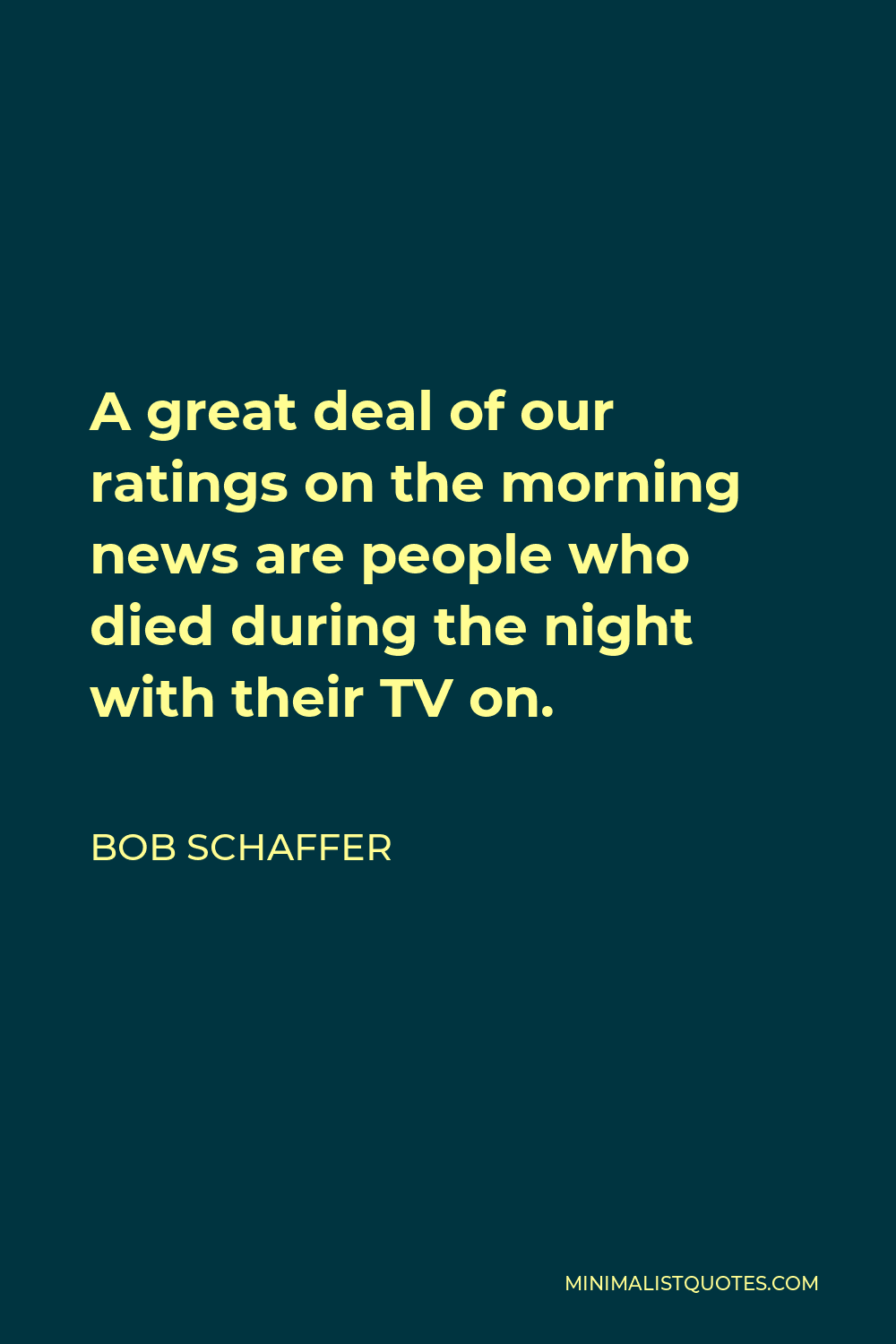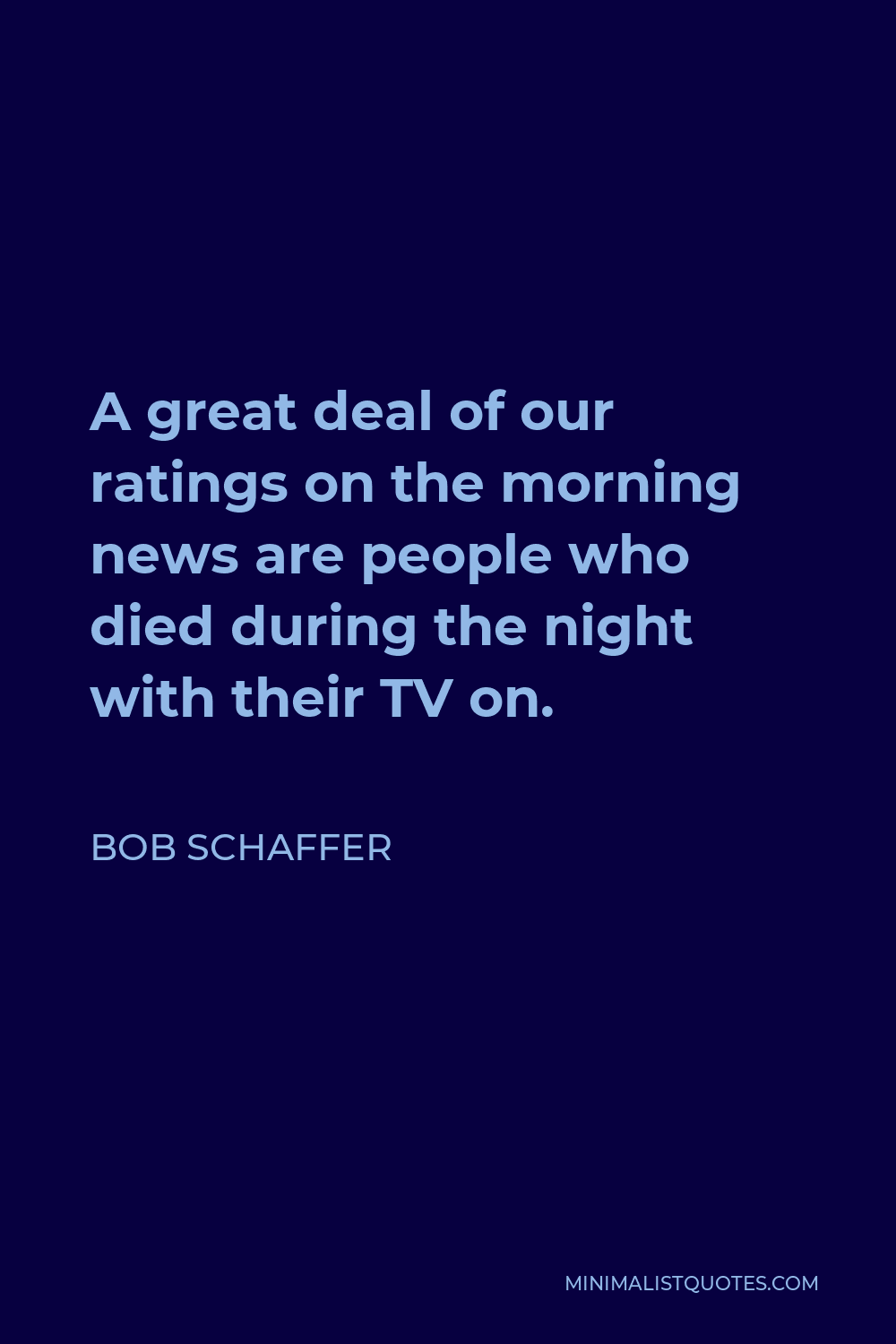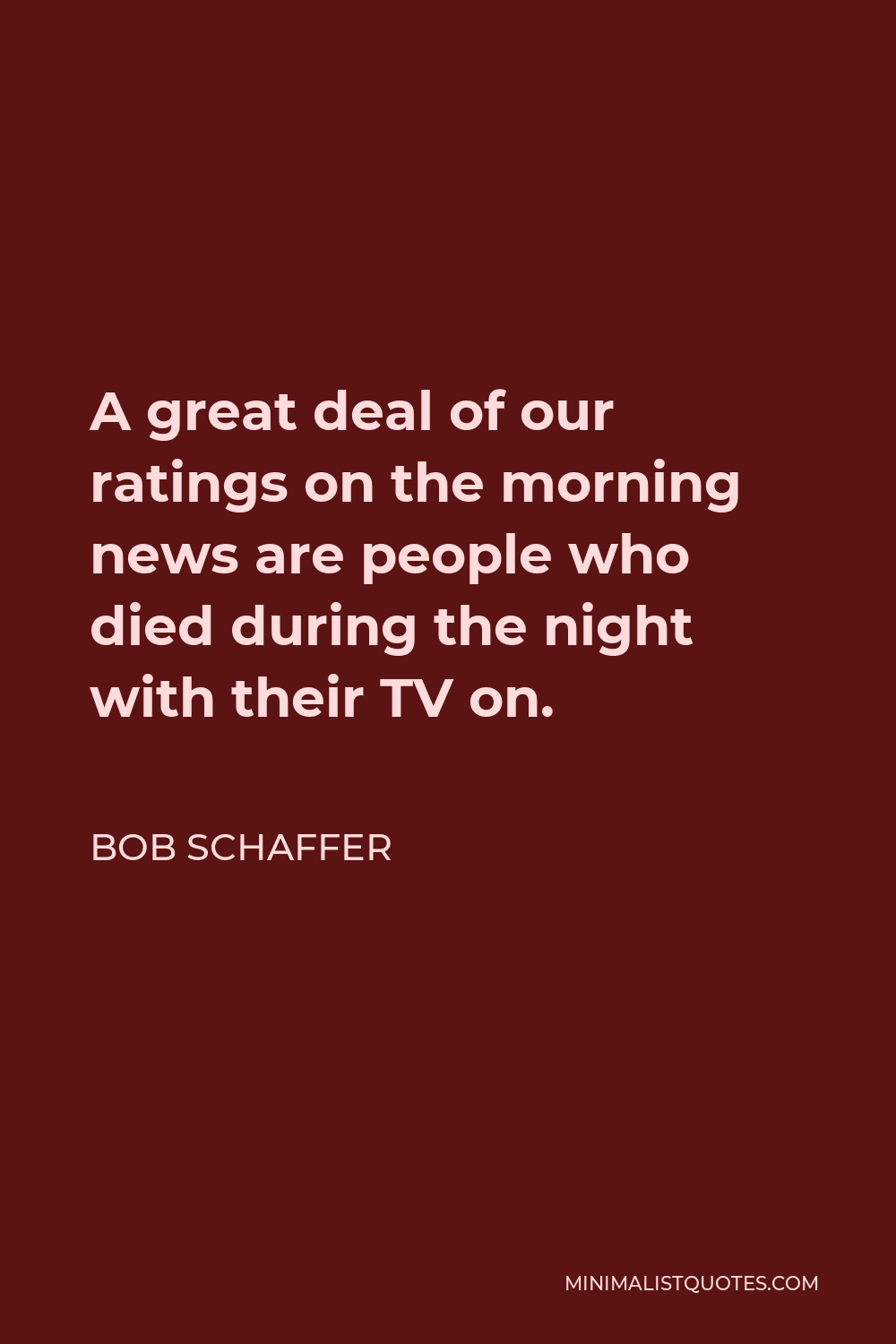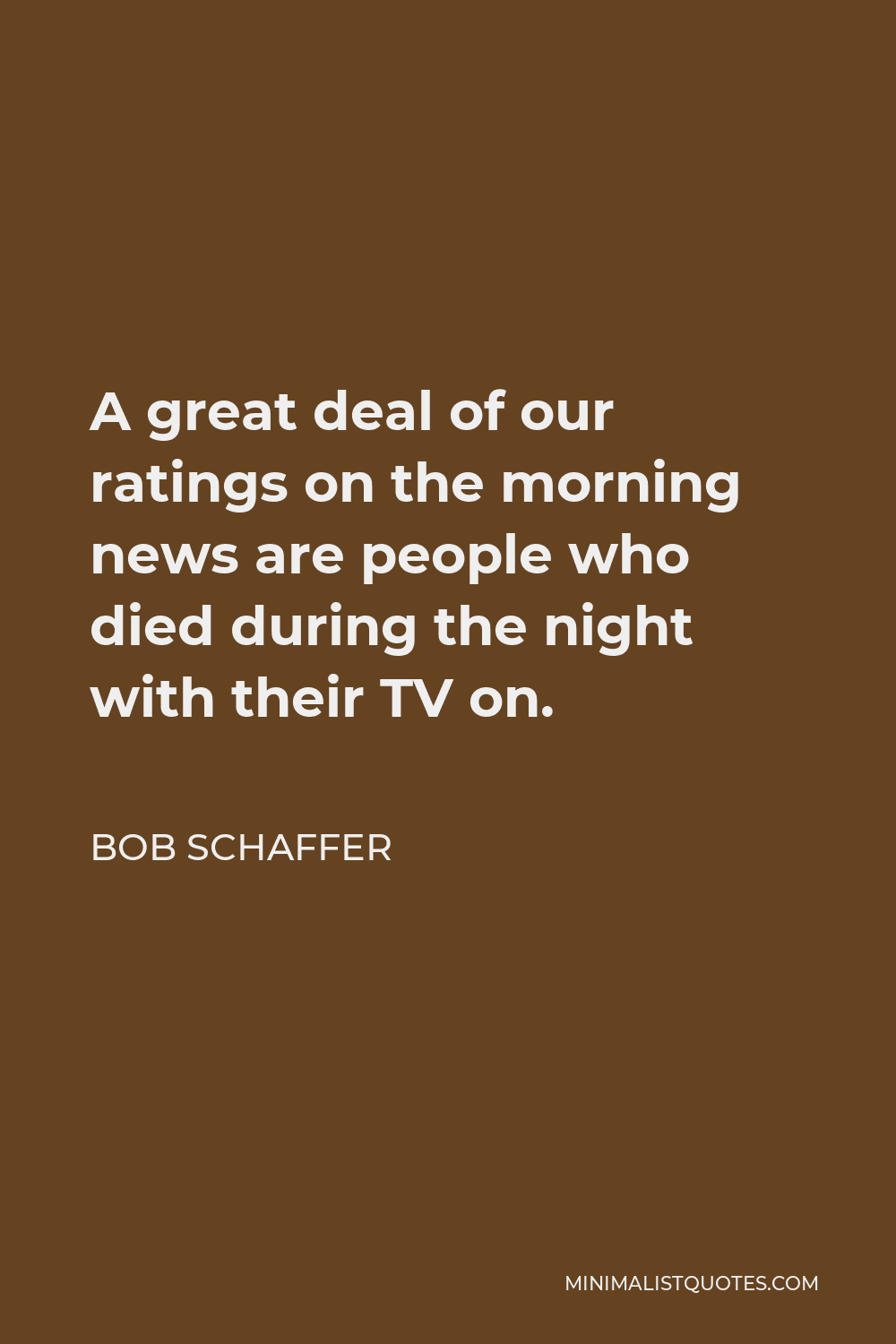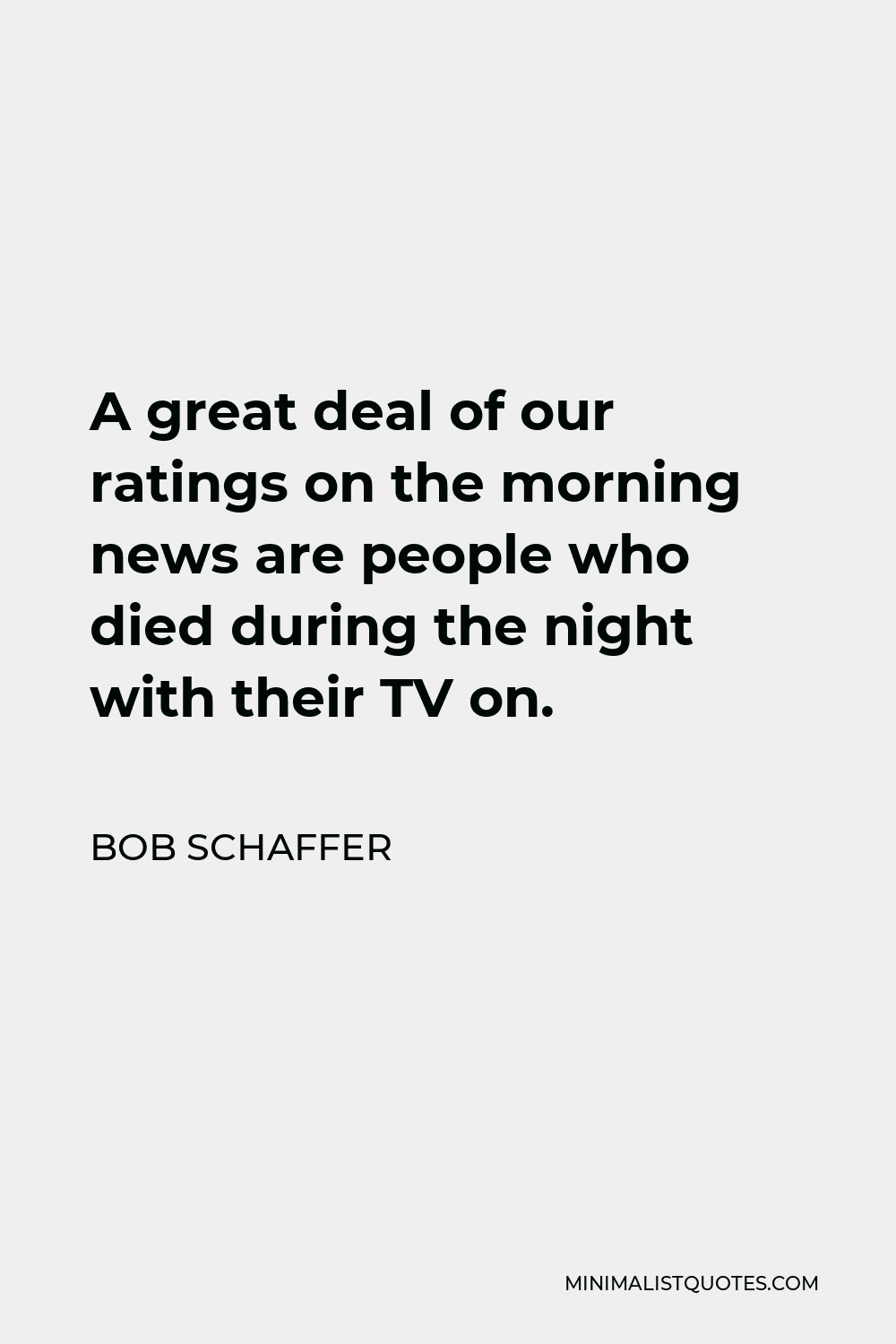A police reporter walks into the worst moment in someone’s life on every single story that he covers. It’s not like being a sports reporter. That’s a great job and all that and takes certain skills.
BOB SCHAFFERA great deal of our ratings on the morning news are people who died during the night with their TV on.
More Bob Schaffer Quotes
-





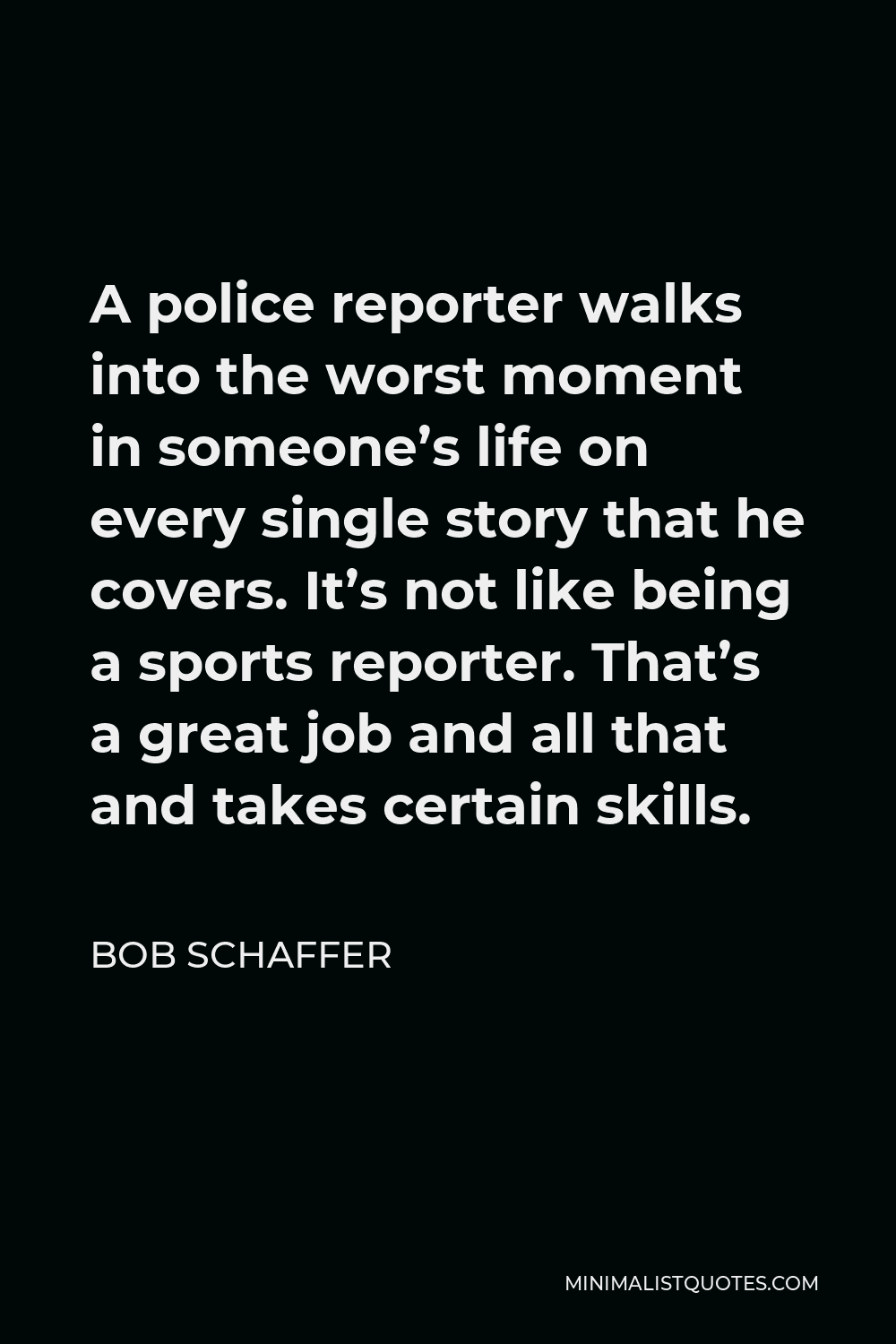
-







And after about two years, I realized that creative writing was not going to help you ace those biological tests. So I switched over to journalism. I didn’t graduate with honors, but I did graduate on time and with some doing.
BOB SCHAFFER -





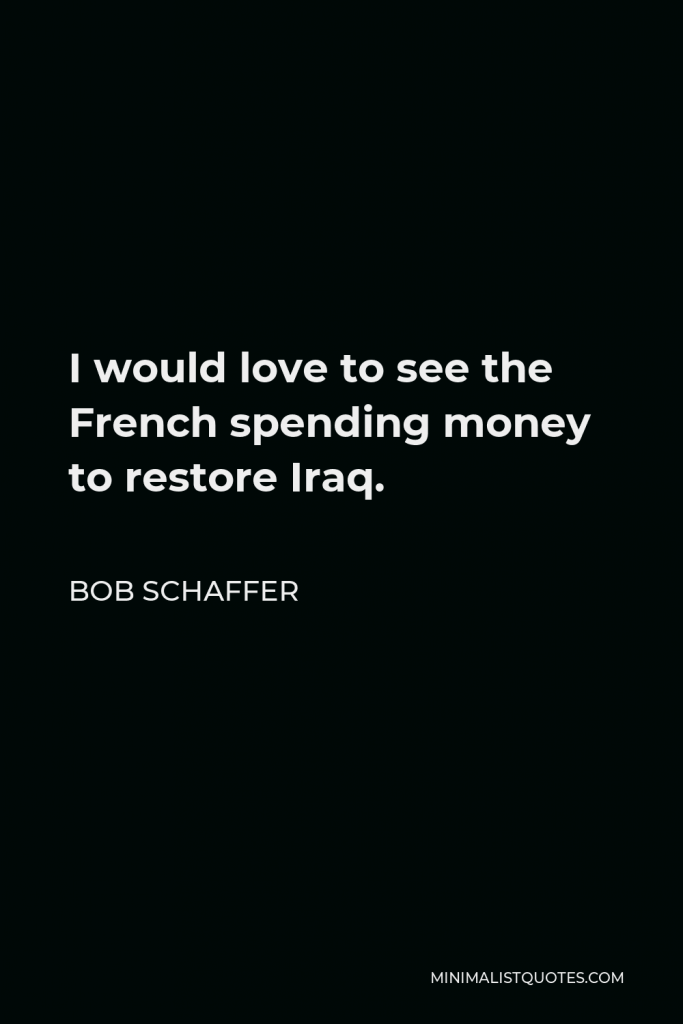

I would love to see the French spending money to restore Iraq.
BOB SCHAFFER -







The first thing the federal government can do to help is get out of the way.
BOB SCHAFFER -






Though there is growing division among the Ukrainian military ranks as to loyalty in this revolution, the possibility of violence looms over the entire situation.
BOB SCHAFFER -







My bladder cancer was related to smoking, and I think smoking kills people.
BOB SCHAFFER -





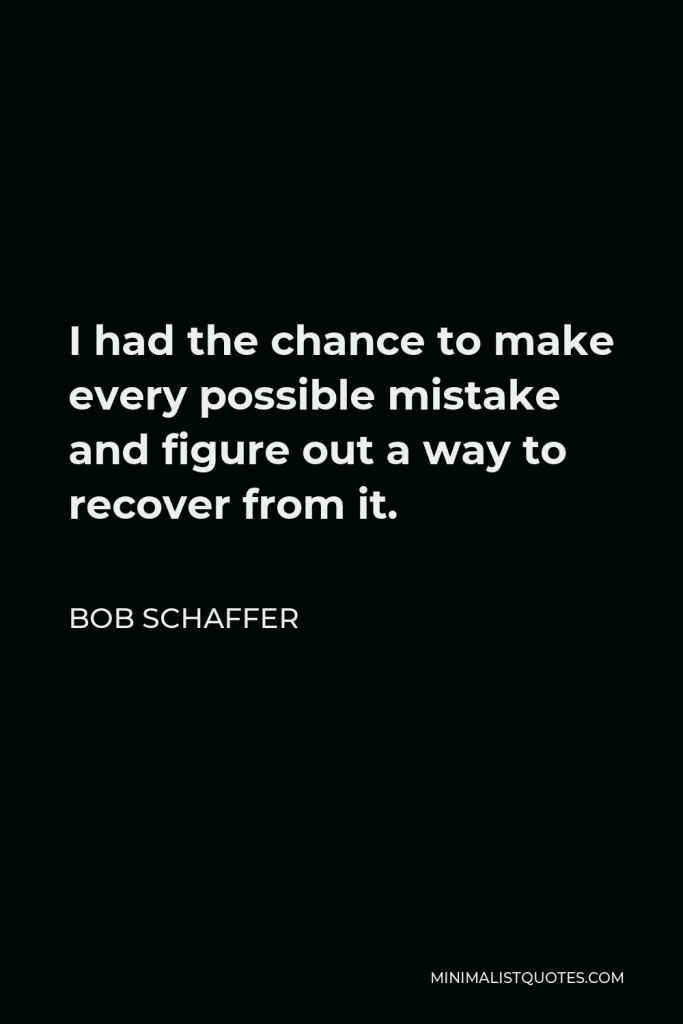

I had the chance to make every possible mistake and figure out a way to recover from it.
BOB SCHAFFER -






I always thought writing was the foundation and the basis for journalism in the same way being able to draw is the foundation for art.
BOB SCHAFFER -





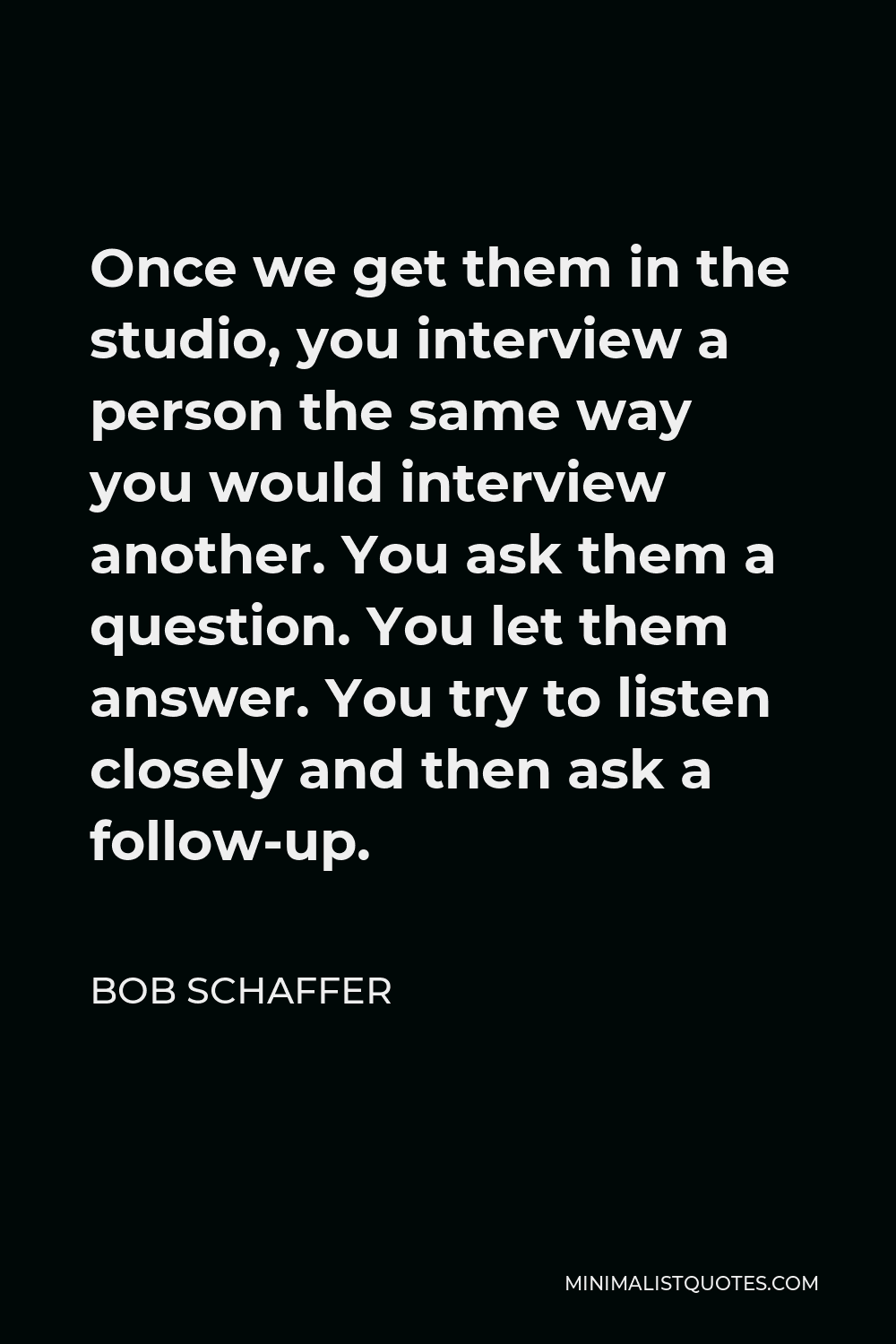
Once we get them in the studio, you interview a person the same way you would interview another. You ask them a question. You let them answer. You try to listen closely and then ask a follow-up.
BOB SCHAFFER -





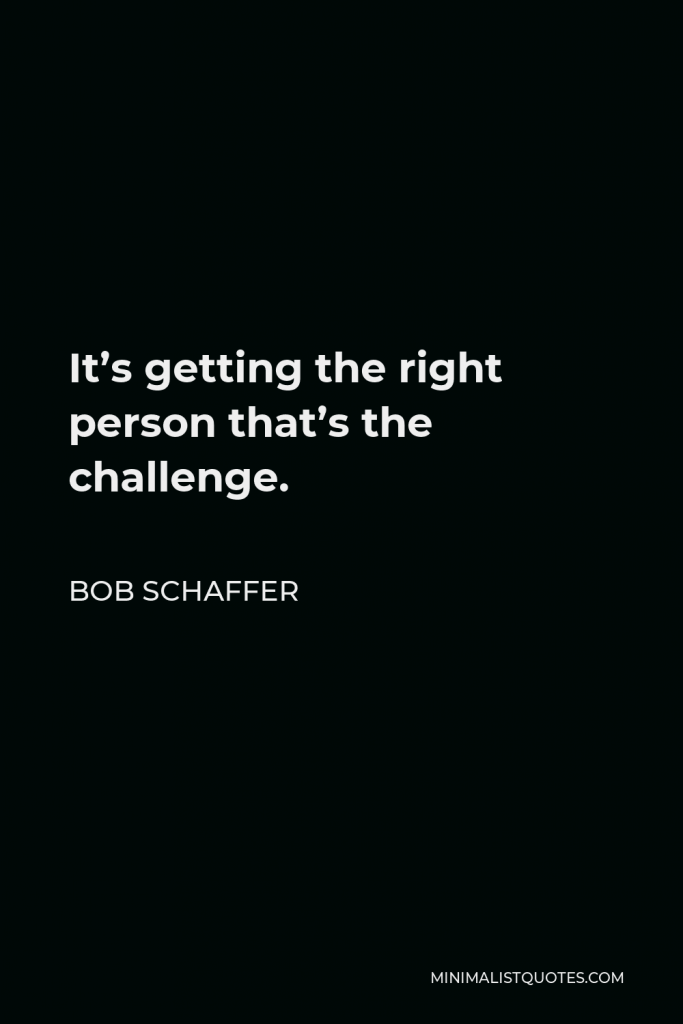

It’s getting the right person that’s the challenge.
BOB SCHAFFER -





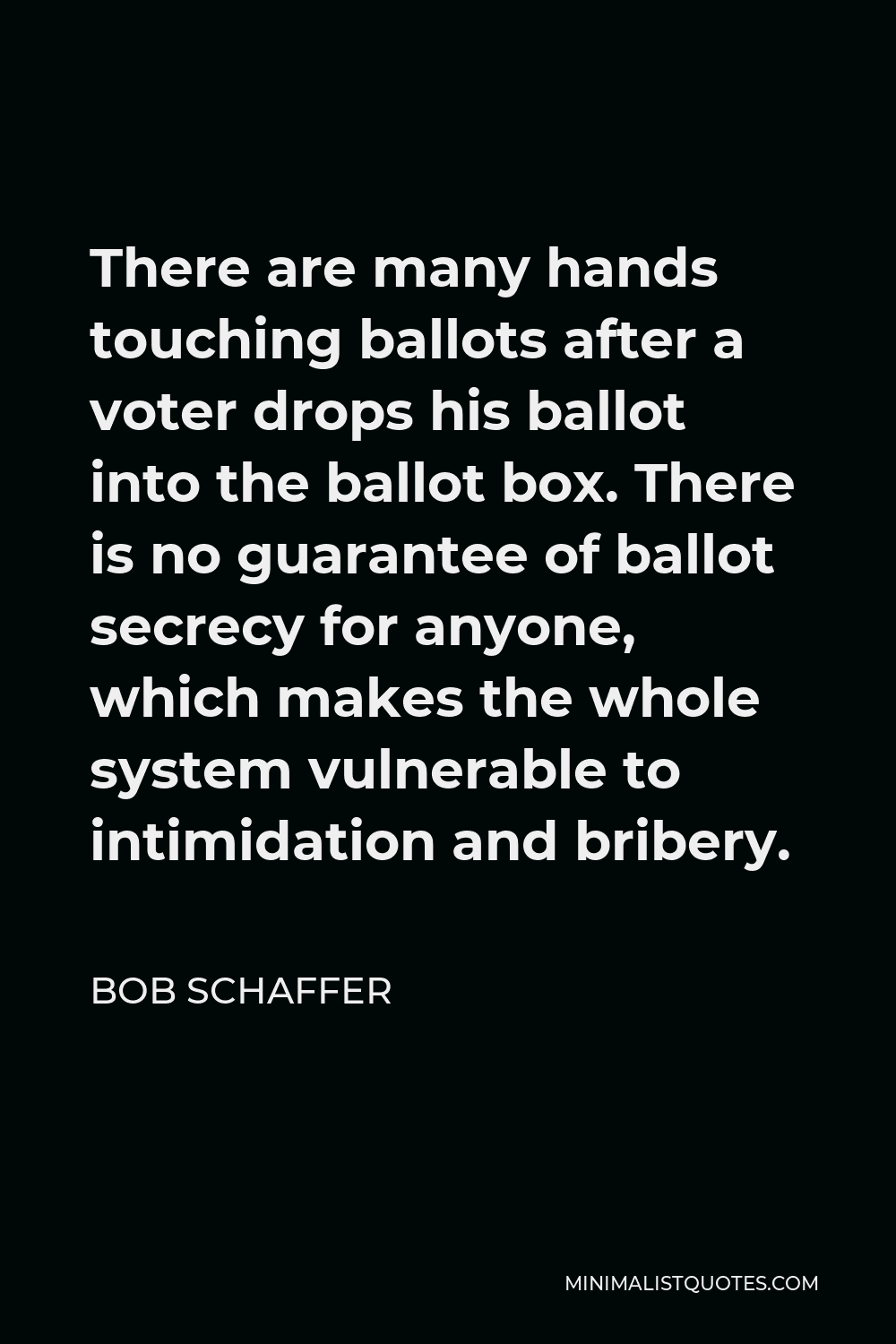
There are many hands touching ballots after a voter drops his ballot into the ballot box. There is no guarantee of ballot secrecy for anyone, which makes the whole system vulnerable to intimidation and bribery.
BOB SCHAFFER -





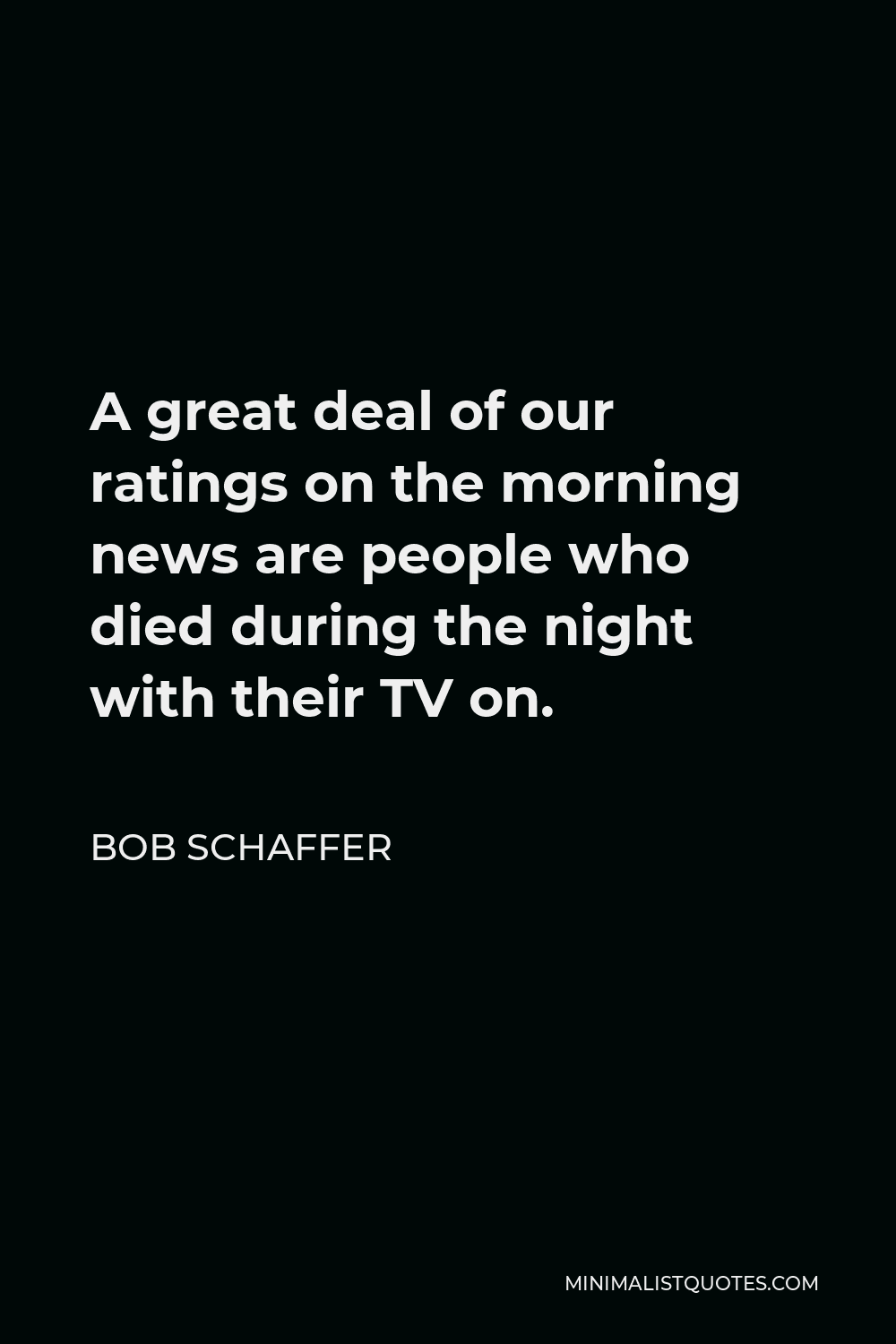
A great deal of our ratings on the morning news are people who died during the night with their TV on.
BOB SCHAFFER -





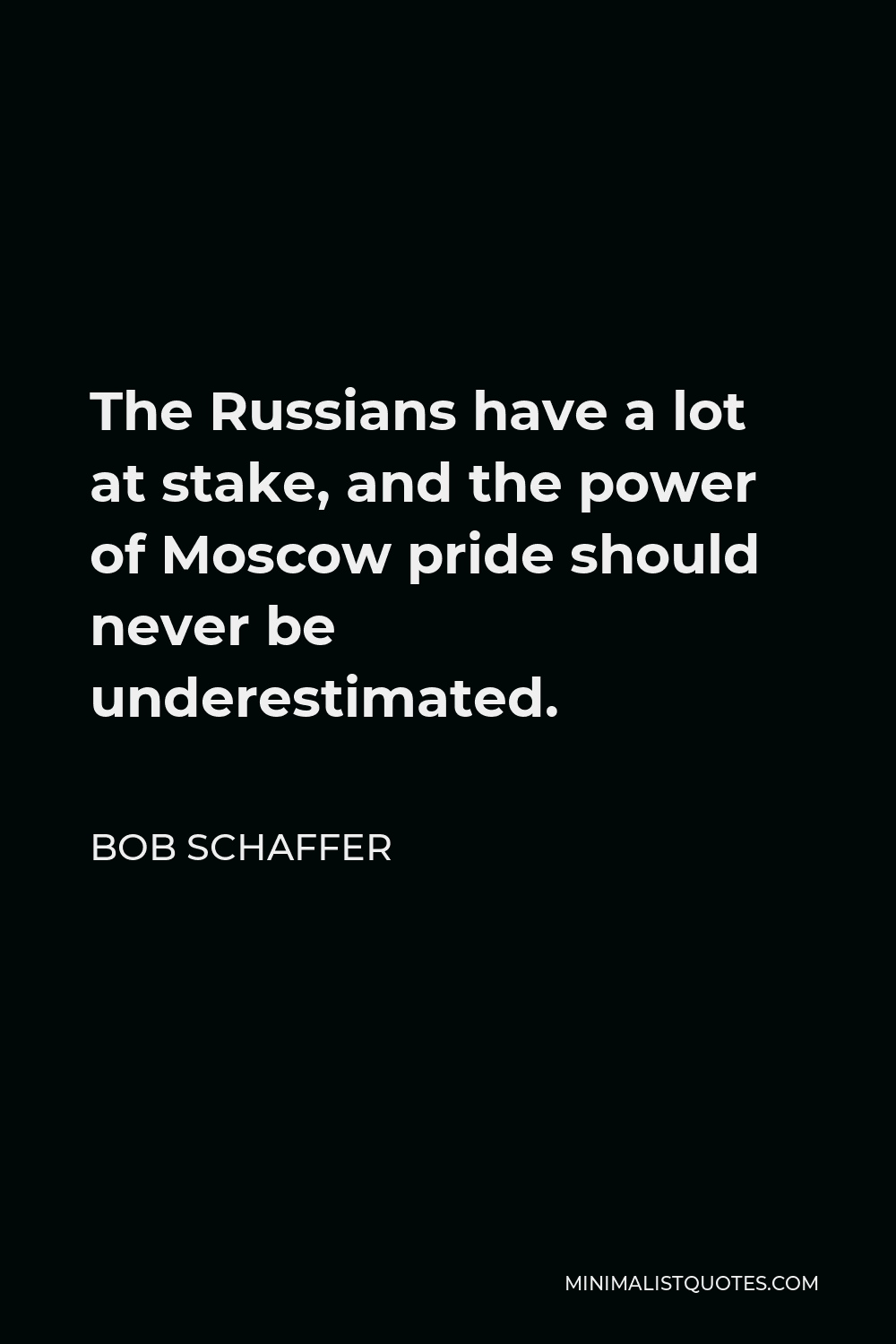
The Russians have a lot at stake, and the power of Moscow pride should never be underestimated.
BOB SCHAFFER -





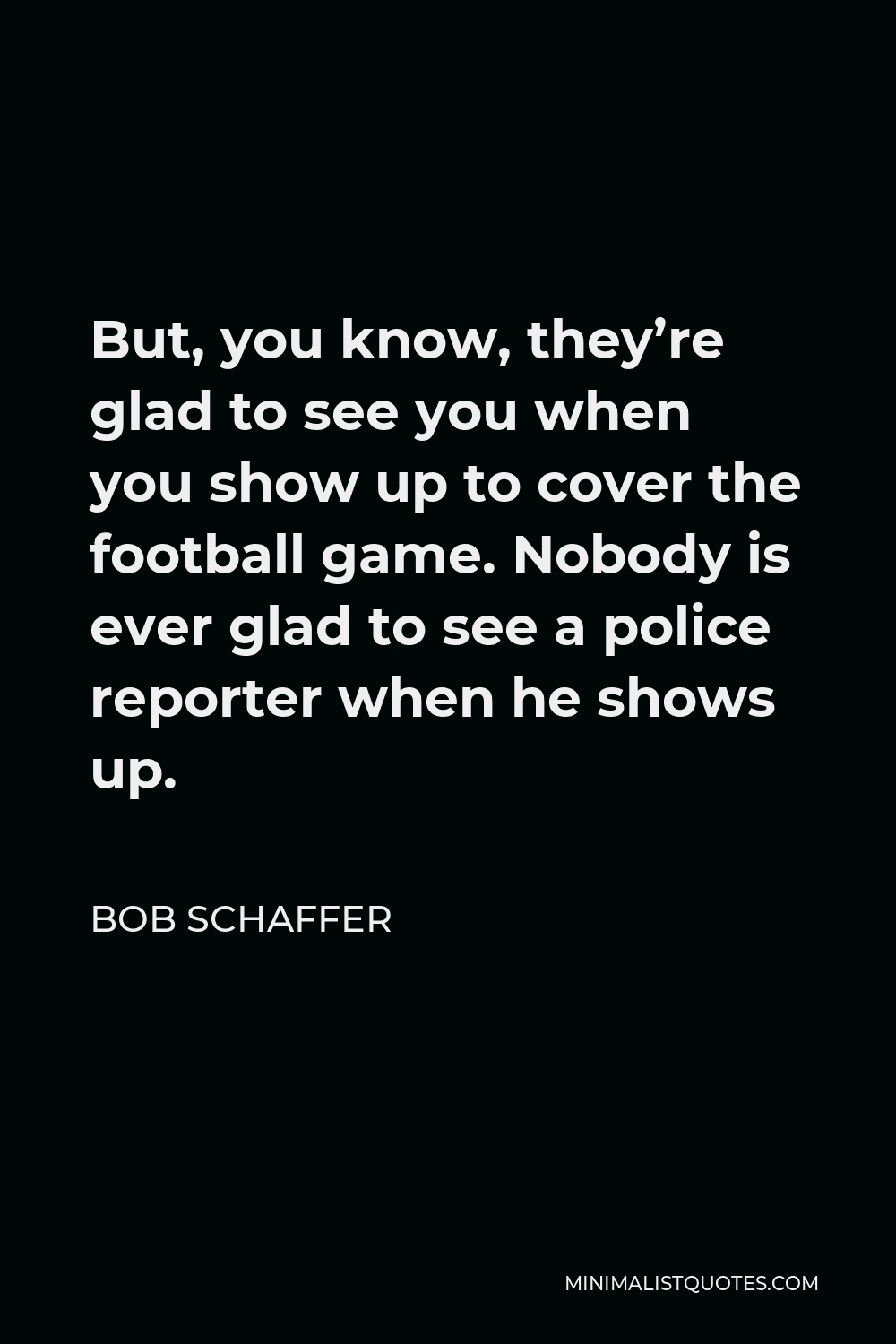
But, you know, they’re glad to see you when you show up to cover the football game. Nobody is ever glad to see a police reporter when he shows up.
BOB SCHAFFER -





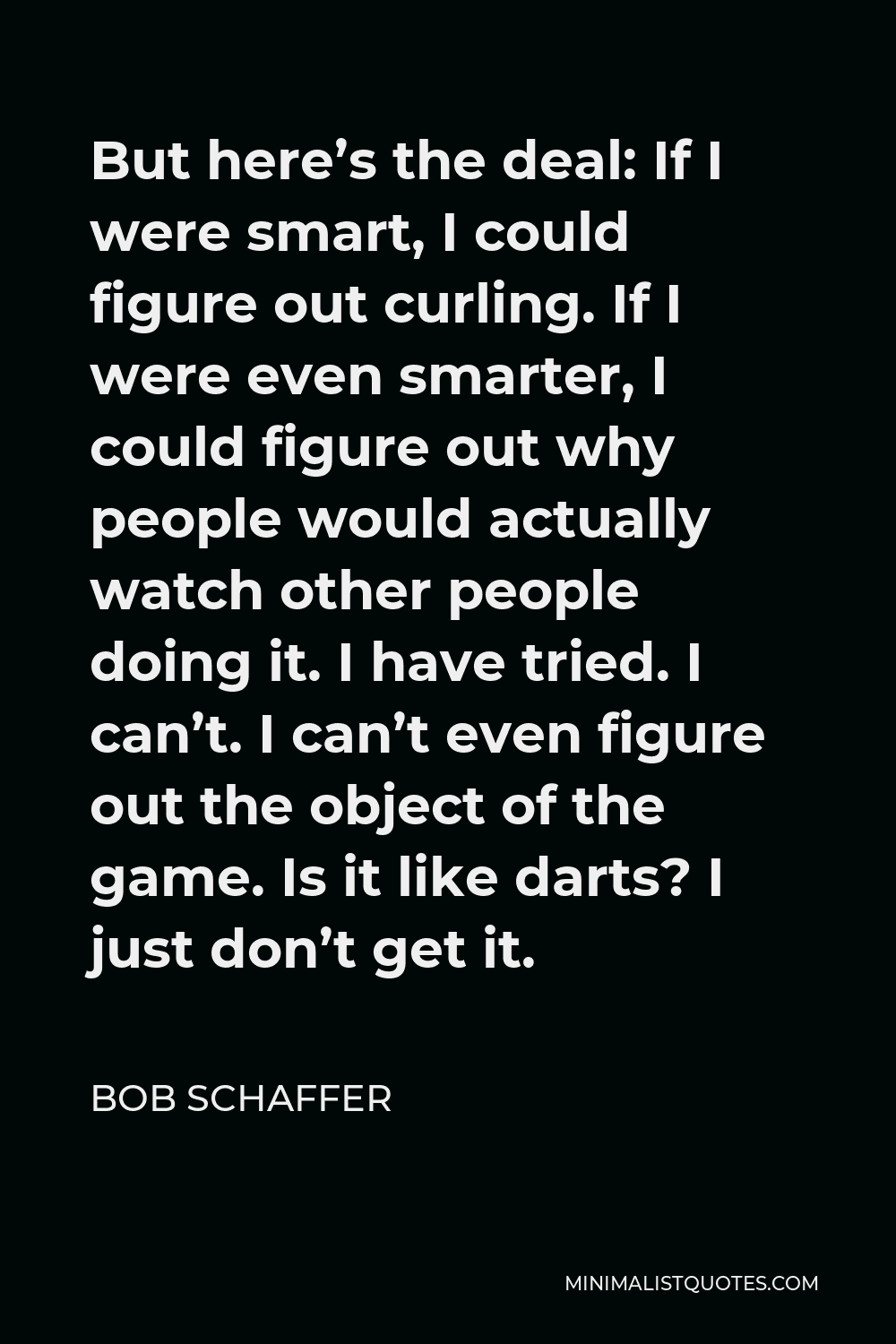
But here’s the deal: If I were smart, I could figure out curling. If I were even smarter, I could figure out why people would actually watch other people doing it. I have tried. I can’t. I can’t even figure out the object of the game. Is it like darts? I just don’t get it.
BOB SCHAFFER -





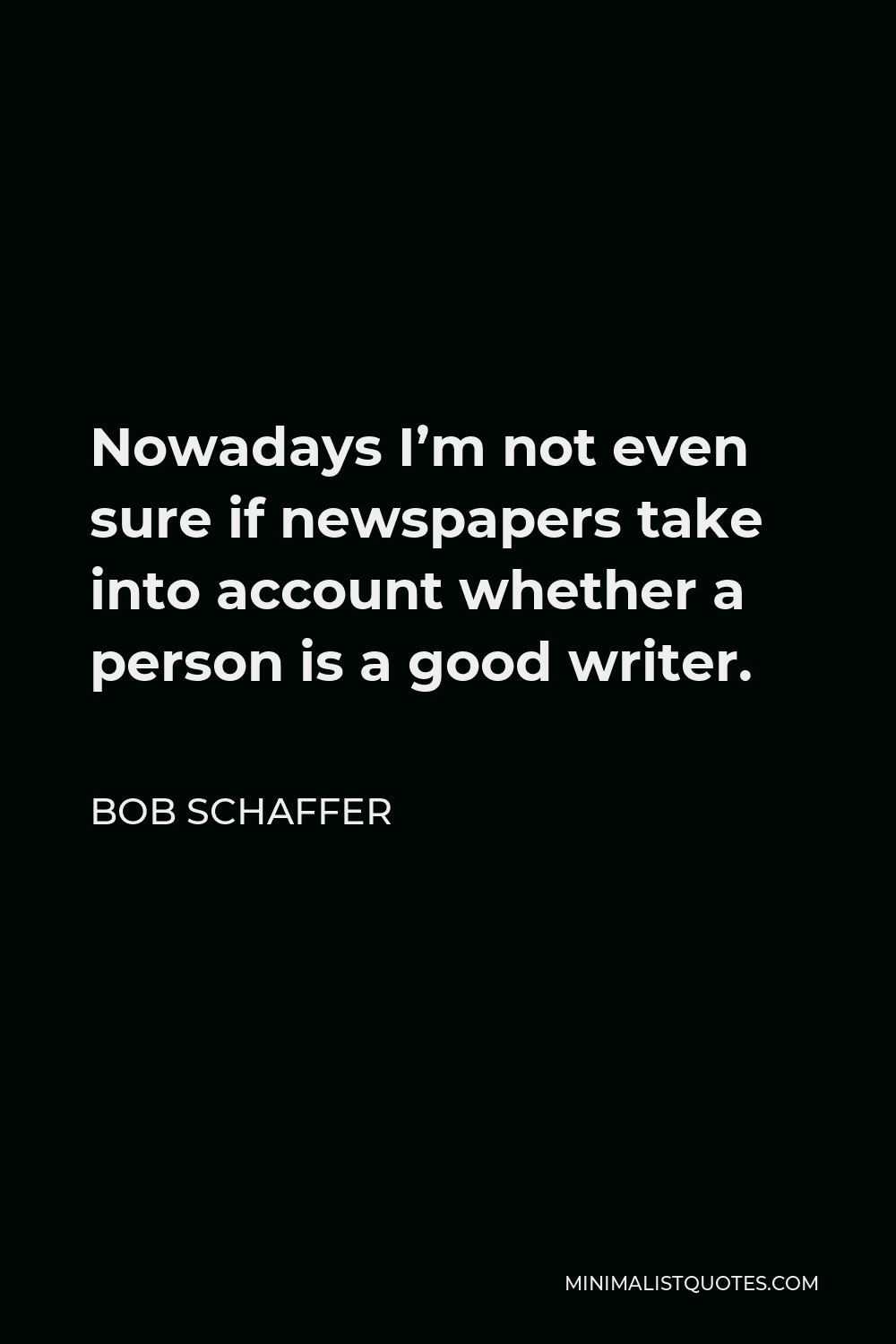
Nowadays I’m not even sure if newspapers take into account whether a person is a good writer.
BOB SCHAFFER
